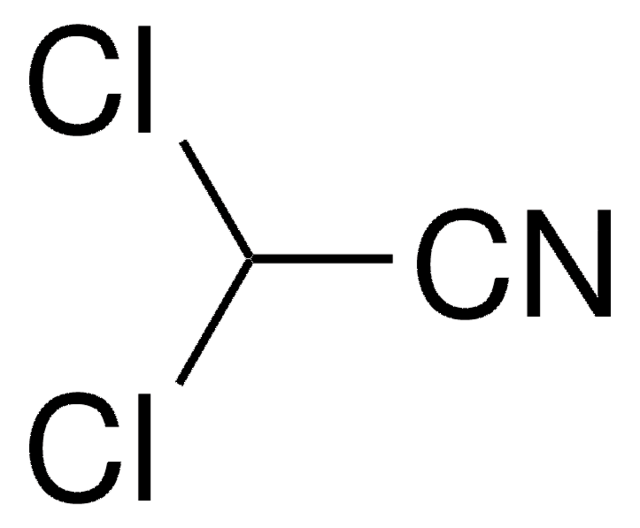778117
Iron disulfide
powder, −325 mesh, 99.8% trace metals basis
Synonym(s):
Ferrous disulfide
Sign Into View Organizational & Contract Pricing
All Photos(1)
About This Item
Empirical Formula (Hill Notation):
FeS2
CAS Number:
Molecular Weight:
119.98
EC Number:
UNSPSC Code:
12352300
NACRES:
NA.23
Recommended Products
Quality Level
Assay
99.8% trace metals basis
form
powder
reaction suitability
reagent type: catalyst
core: iron
particle size
−325 mesh
mp
450 °C (lit.)
application(s)
battery manufacturing
InChI
1S/Fe.S2/c;1-2/q+2;-2
InChI key
NIFIFKQPDTWWGU-UHFFFAOYSA-N
Related Categories
Application
Iron Disulfide has attracted significant interest as a material for photovoltaics(1) and lithium ion battery cathodes(2). Iron disulfide is also studied as a potential material for the sequestration of environmental contaminants(3).
Storage Class Code
11 - Combustible Solids
WGK
WGK 3
Flash Point(F)
Not applicable
Flash Point(C)
Not applicable
Certificates of Analysis (COA)
Search for Certificates of Analysis (COA) by entering the products Lot/Batch Number. Lot and Batch Numbers can be found on a product’s label following the words ‘Lot’ or ‘Batch’.
Already Own This Product?
Find documentation for the products that you have recently purchased in the Document Library.
Customers Also Viewed
Edmundo Placencia-Gómez et al.
Journal of contaminant hydrology, 148, 25-38 (2013-03-28)
Oxidation of metal sulfide minerals is responsible for the generation of acidic waters rich in sulfate and metals. When associated with the oxidation of sulfide ore mine waste deposits the resulting pore water is called acid mine drainage (AMD); AMD
James Farquhar et al.
Proceedings of the National Academy of Sciences of the United States of America, 110(44), 17638-17643 (2013-02-15)
It is generally thought that the sulfate reduction metabolism is ancient and would have been established well before the Neoarchean. It is puzzling, therefore, that the sulfur isotope record of the Neoarchean is characterized by a signal of atmospheric mass-independent
Sibylle Ziegler et al.
The ISME journal, 7(9), 1725-1737 (2013-04-27)
Biofilms can provide a number of different ecological niches for microorganisms. Here, a multispecies biofilm was studied in which pyrite-oxidizing microbes are the primary producers. Its stability allowed not only detailed fluorescence in situ hybridization (FISH)-based characterization of the microbial
Teng Zeng et al.
Environmental science & technology, 47(3), 1287-1296 (2013-01-04)
Prairie pothole lakes (PPLs) are naturally sulfur-enriched wetlands in the glaciated prairie region of North America. High sulfate levels and dynamic hydrogeochemistry in combination render PPLs a unique environment to explore the speciation of sedimentary sulfur (S). The goals of
Nan Wang et al.
Huan jing ke xue= Huanjing kexue, 33(11), 3916-3921 (2013-01-18)
The mechanism of pyrite oxidation in acidic solutions was investigated by electrochemical analysis methods, such as open-circuit potential, cyclic voltammetry, Tafel polarization curve and anodic polarization curve, using a pyrite-carbon paste electrode as working electrode. The results showed that the
Our team of scientists has experience in all areas of research including Life Science, Material Science, Chemical Synthesis, Chromatography, Analytical and many others.
Contact Technical Service











